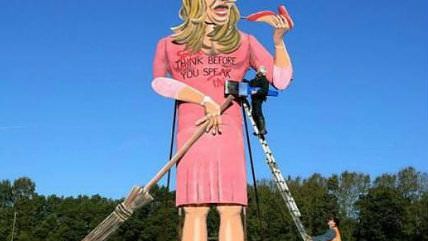U.K. Criminalization of Speech Is Really Starting to Scare Me


Earlier this week, British reality TV star Katie Hopkins tweeted some fears about a Scottish Ebola patient coming to London for treatment. She's now facing a criminal investigation.
"Inquiries are ongoing into the nature of these tweets and to establish any potential criminality," a Scottish law enforcement official told the BBC. "Police Scotland will thoroughly investigate any reports of offensive or criminal behaviour online and anyone found to be responsible will be robustly dealt with."
Here are Hopkins' possibly criminally offensive statements:
More than 25,000 people have signed an online petition calling for Hopkins to be charged over her "vile racist tweets."
Hopkins is the latest in a recent line of high-profile "hate speech" cases in the U.K., where it's illegal to use "threatening or abusive" words if they're intended or likely to stir up "racial hatred" or hatred based on religion or sexual orientation. Some version of this law has been on the books since the mid-'80s, but enforcement seems to be ramping up, or at least getting more ridiculous, in recent years. Last April, for instance, British politician Paul Weston was arrested on suspicion of religious or racial harassment after quoting a passage on Islam from a book by Winston Churchill.
Meanwhile, UK Home Secretary Theresa May wants to introduce "extremism disruption orders" for people whose words betray a lack of "respect for the rule of law" or "respect for minorities." Those served with an order would thereby be prevented from publishing anything online, speaking in a public forum, or appearing on TV. And British Labour Party politician John Mann thinks the government should be able to ban people from social media for posting offensive messages. Right now, the state can only jail people for such messages, not impede on their freedom of expression indefinitely.
Of course, the British have always been more censorship-happy than Americans—why should we worry too much about their current speech-limiting antics? Because they come at a time when countries around the world—from Japan to India to Turkey—have been debating (and legislating) the handling of hate speech, and the European Union's Council on Human Rights has been taking up the "no hate speech" mantle more vociferously. The United Nations is also pressuring countries, particularly Japan, to enact anti-hate speech laws. I'm really afraid that speech penalties of the past are the wave of the future.


Show Comments (76)